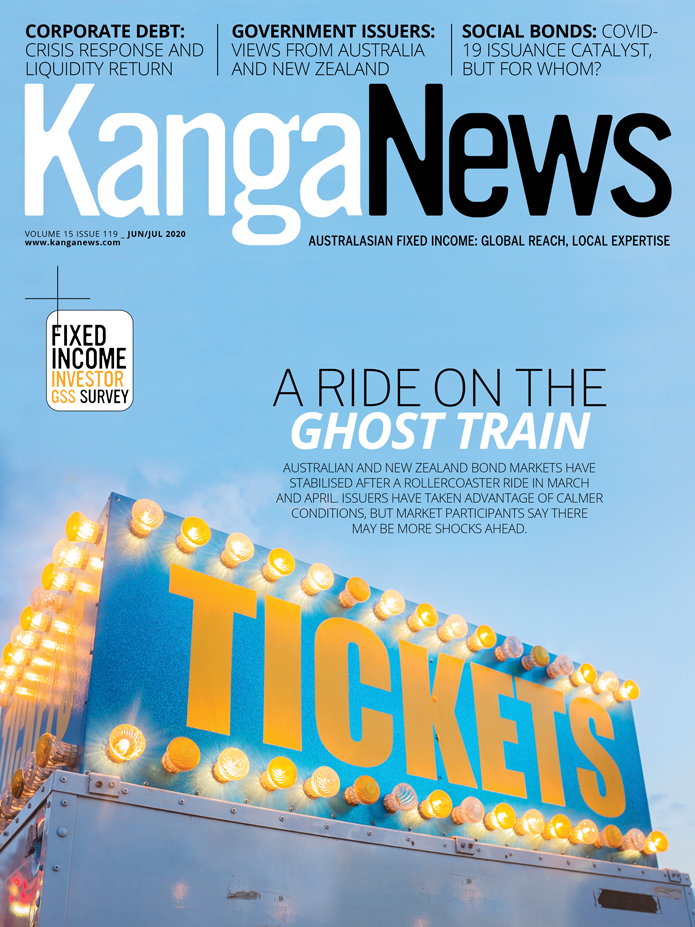Jun/Jul 2020
In this issue

In this issue
- Government-sector focus – Australian and New Zealand roundtables
- Government-sector focus – investor perspectives
- Government-sector focus – issuer viewpoints and funding updates
- Government-sector focus – futures market
- Government-sector focus – Australia rating update
- Green, social and sustainability investor survey results and analysis
- Social bonds and the COVID-19 catalyst
- Corporate funding options through the crisis
- Fintech lenders fight for their funding niche
- KangaNews Market People of the Year 2019

